Dinner Party Series
Awkward Dinner Parties
The dinner party is any personal space where social behavior is self-monitored.It joins familiarity with cold performance. The Uncanny seems to surface, as home-like qualities –the layout of a room, familiar faces, the pace of an ideal evening –differ in small and unexpected ways, coming in and out of focus, and at times become subtly foreign and disorienting. I use a rhythm of both straight lines along with oddly cast shadows, the falling out of a floor or a veering doorway to show this feeling of unease. I find that using a bright ground begins with a positive tone to the painting, that can slowly slip into a sickening feeling over time.
Many of the paintings are in a dream-like state, reflecting both on the myth of a flawless evening and the farce that is inevitably in play. Within the Dinner Party series, I sometimes use animals as instigators of chaos. The animals become more present as symbols of blunt honesty and desire.
The dinner party is any personal space where social behavior is self-monitored.It joins familiarity with cold performance. The Uncanny seems to surface, as home-like qualities –the layout of a room, familiar faces, the pace of an ideal evening –differ in small and unexpected ways, coming in and out of focus, and at times become subtly foreign and disorienting. I use a rhythm of both straight lines along with oddly cast shadows, the falling out of a floor or a veering doorway to show this feeling of unease. I find that using a bright ground begins with a positive tone to the painting, that can slowly slip into a sickening feeling over time.
Many of the paintings are in a dream-like state, reflecting both on the myth of a flawless evening and the farce that is inevitably in play. Within the Dinner Party series, I sometimes use animals as instigators of chaos. The animals become more present as symbols of blunt honesty and desire.
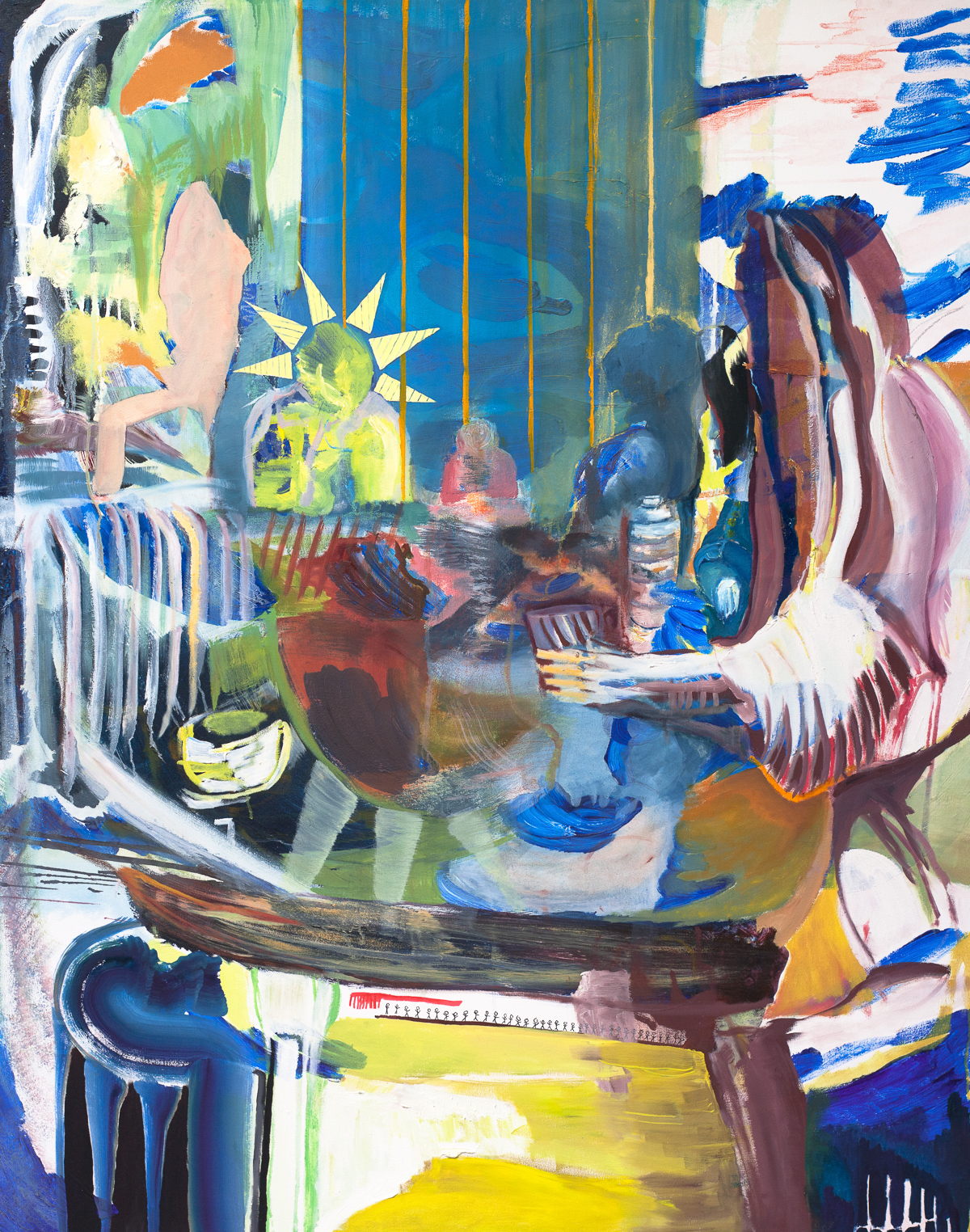
︎︎
“We are all humiliated by the sudden discovery of a fact which has existed very comfortably and perhaps been staring at us in private while we have been making up our world entirely without it.”
–Middlemarch, George Eliot
–Middlemarch, George Eliot

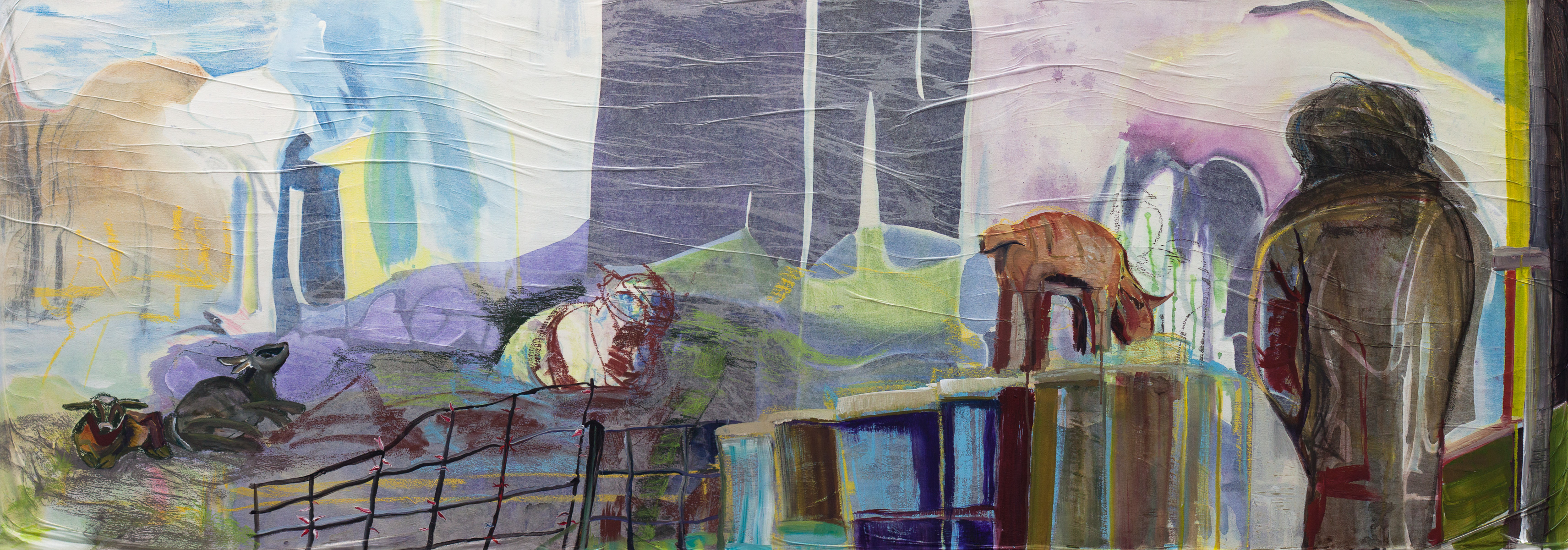

My initial interest in social power dynamics came from E.M. Foster and George Elliot, along with other Victorian novelists who wrote about class divisions.
19th century European literature is noted for the realism of the novels, and for the introduction of psychological potraiture. Authors begin to show an internal dialog in their characters, breaking away from traditional archetypes. They gave complex motivations to a character’s decisions, separating their hero out from society and minor characters surrounding them. A character may foster a tumuluous inner debate, all while observing a tea cup.
Most of the literary realism writers focused on social strife and class warfare, describing in intricate detail the mundane and realistic surroundings of daily life. (George Eliot, E.M. Foster, Gustav Floubert) These were the hardcore Realists.
Other Realism authors are in a a subset of Romantic Realism. While their work does not directly dable in the supernatural like the preceeding century’s Gothic novels, they borrow supernatural imagery in their metaphors and discriptions. They set their characters in beautiful tableaux, framing them out in pivital moments, and benefiting from their audience’s gothic education in ghosts, spirits and the uncanny. (Charles Dickens, Fyodor Dostoevsky)
19th century European literature is noted for the realism of the novels, and for the introduction of psychological potraiture. Authors begin to show an internal dialog in their characters, breaking away from traditional archetypes. They gave complex motivations to a character’s decisions, separating their hero out from society and minor characters surrounding them. A character may foster a tumuluous inner debate, all while observing a tea cup.
Most of the literary realism writers focused on social strife and class warfare, describing in intricate detail the mundane and realistic surroundings of daily life. (George Eliot, E.M. Foster, Gustav Floubert) These were the hardcore Realists.
Other Realism authors are in a a subset of Romantic Realism. While their work does not directly dable in the supernatural like the preceeding century’s Gothic novels, they borrow supernatural imagery in their metaphors and discriptions. They set their characters in beautiful tableaux, framing them out in pivital moments, and benefiting from their audience’s gothic education in ghosts, spirits and the uncanny. (Charles Dickens, Fyodor Dostoevsky)
“When the Devil goeth about like a roaring lion, he goeth about in a shape by which few but savages and hunters are attracted. But, when he is trimmed, smoothed, and varnished, according to the mode; when he is aweary of vice, and aweary of virtue, used up as to brimstone, and used up as to bliss; then, whether he take to the serving out of red tape, or to the kindling of red fire, he is the very Devil.
So James Harthouse reclined in the window, indolently smoking, and reckoning up the steps he had taken on the road by which he happened to be travelling. The end to which it led was before him, pretty plainly; but he troubled himself with no calculations about it. What will be, will be.”
–Hard Times by Charles Dickens
So James Harthouse reclined in the window, indolently smoking, and reckoning up the steps he had taken on the road by which he happened to be travelling. The end to which it led was before him, pretty plainly; but he troubled himself with no calculations about it. What will be, will be.”
–Hard Times by Charles Dickens
“For his part, once he had taken his seat and lookedabout him, he noticed at once that those present bore no resemblance to the bogies Aglaya had terrified him with the day before, or to his subsequent nightmares. For the first time in his life he was seeing a small corner of what bore the dread name of ‘society’. Consequent upon certain particular intentions, ideas, and inclinations of his own, he had long wished to break into this charmed circle of people and so took a keen interest in his first impression of it. This first impression was positively entrancing. He had an immediate feeling, somehow, that all these people were simply born to be together; that the Yepanchins were not giving a party that evening at all, and there were no invited guests; they were all friends together, and he himself had long been their devoted associate and shared their opinions; he was now returning to them after a brief separation. The charming effect of elegant manners, simplicity, and seeming candour, verged on the magical. It could never have occurred to him that all this good nature and high-mindedness, all this wit and lofty sense of dignity, might only be a superb artistic veneer. The majority of the guests, their impressive outward appearance notwithstanding, comprised rather shallow individuals, who were too complacent to realize that many of their good points were simply a veneer, something they were not responsible for, since it had been acquired unconsciously through inheritance.”
–The Idiot by Fyodor Dostoevsy
–The Idiot by Fyodor Dostoevsy

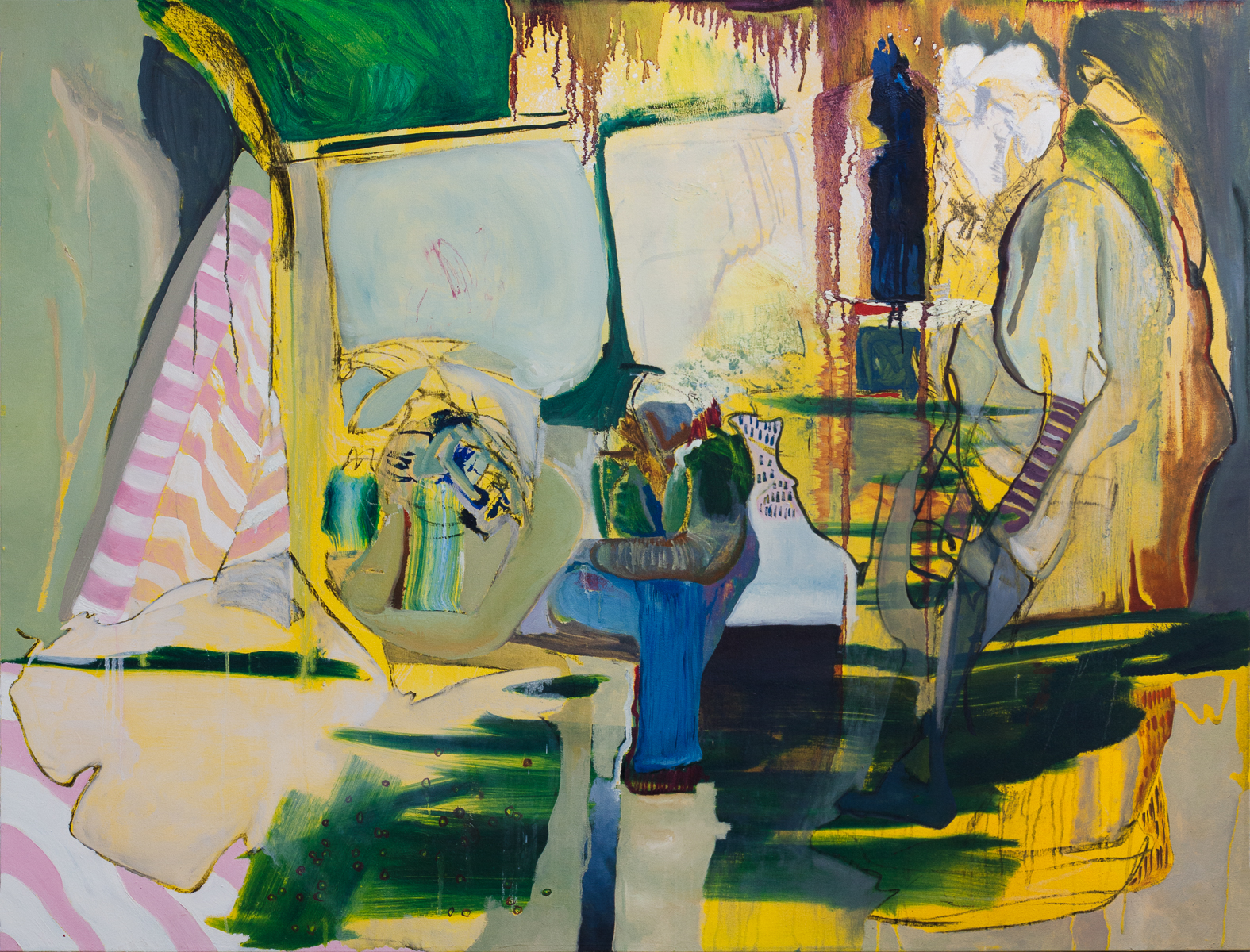

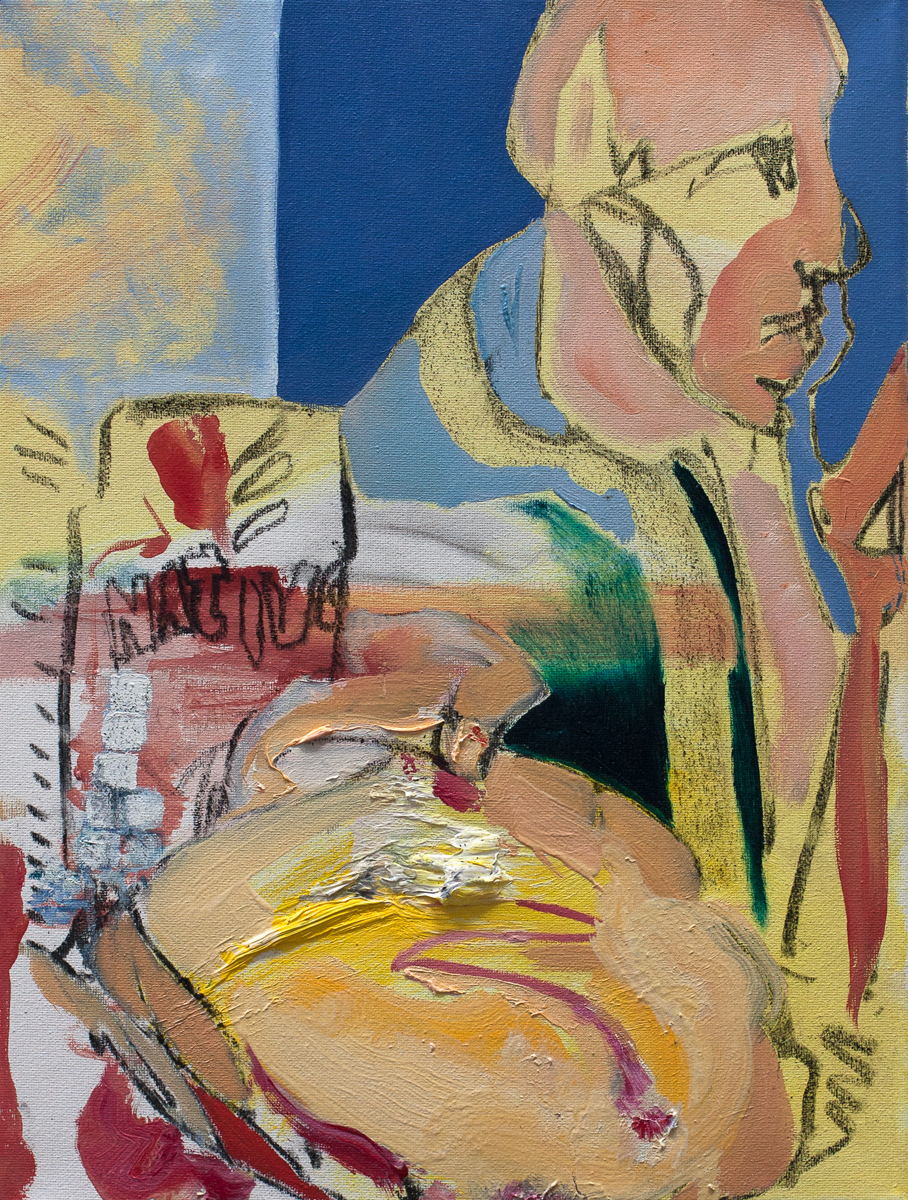

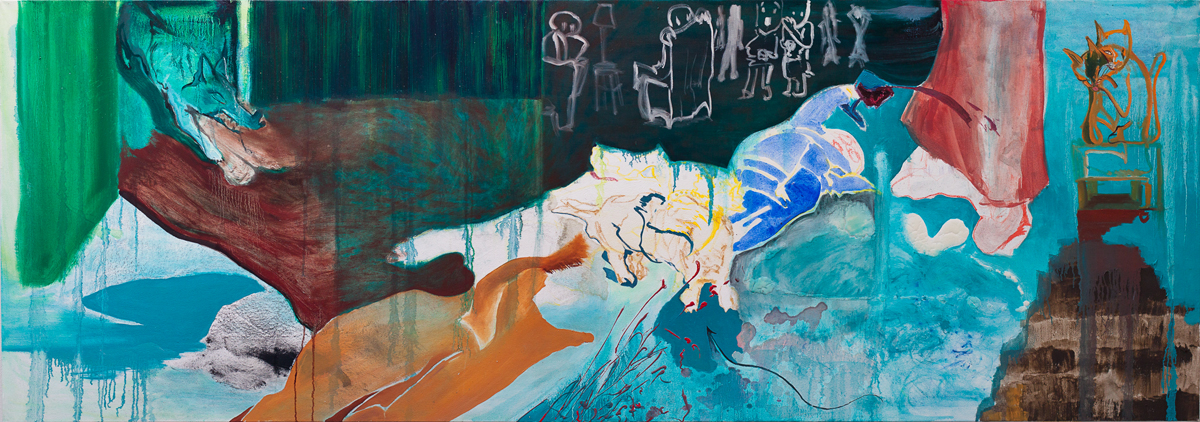
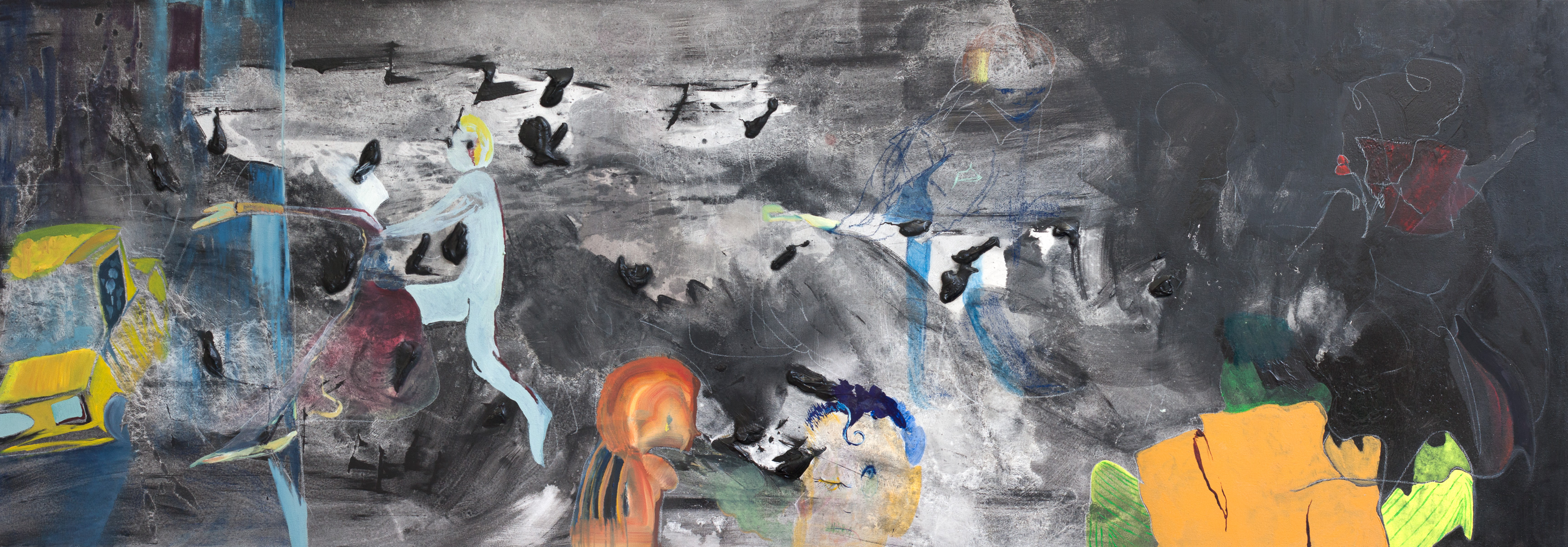



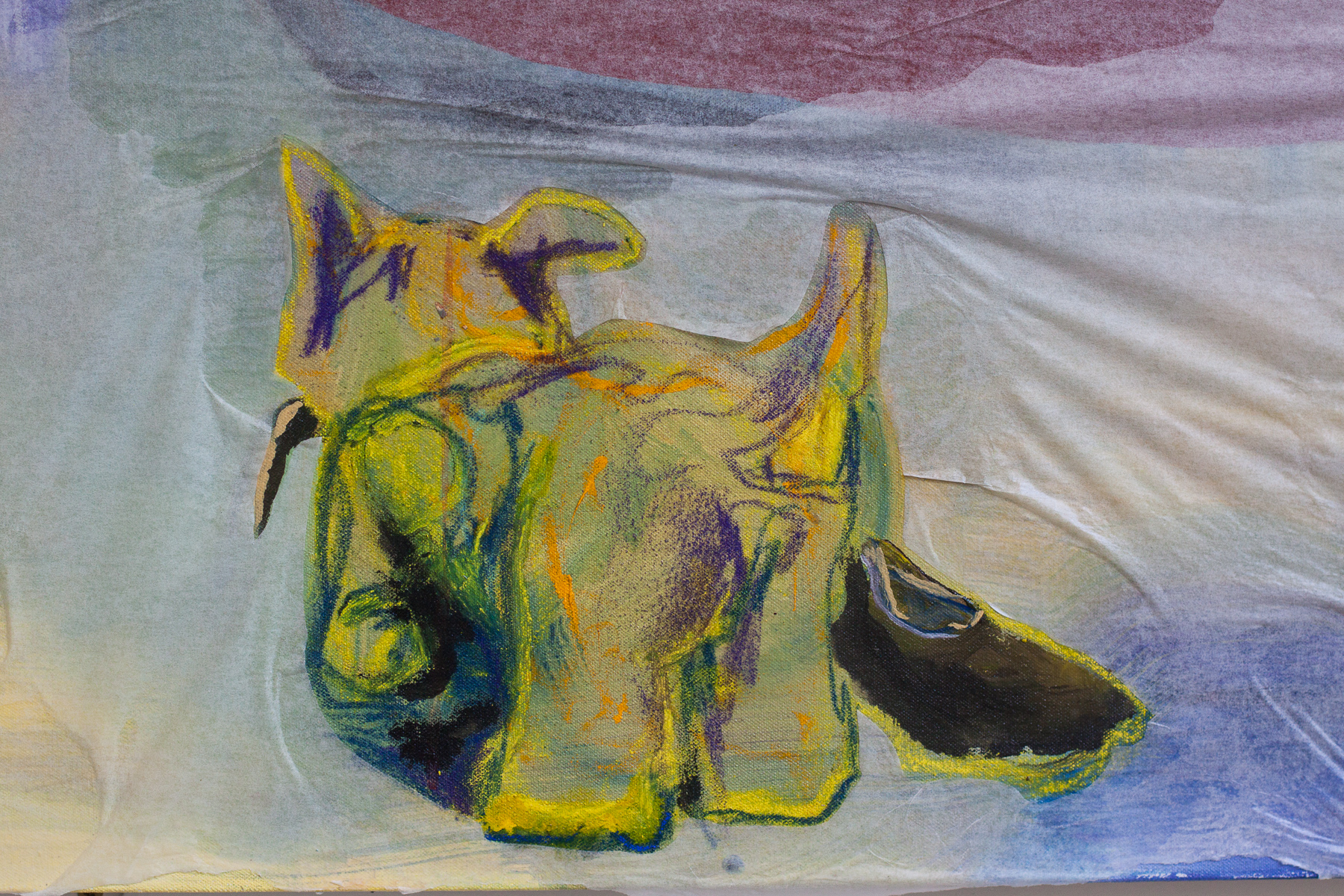
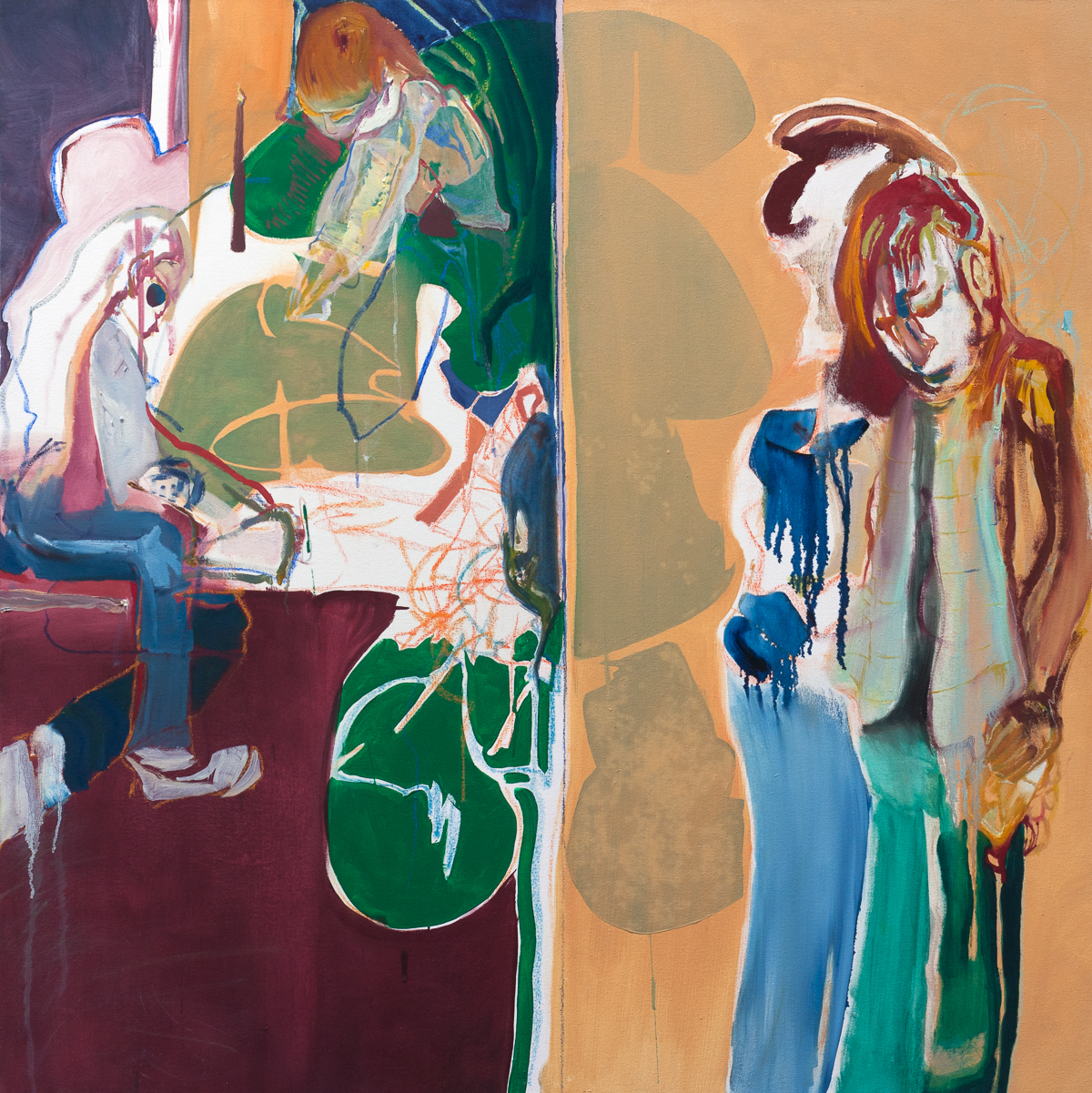
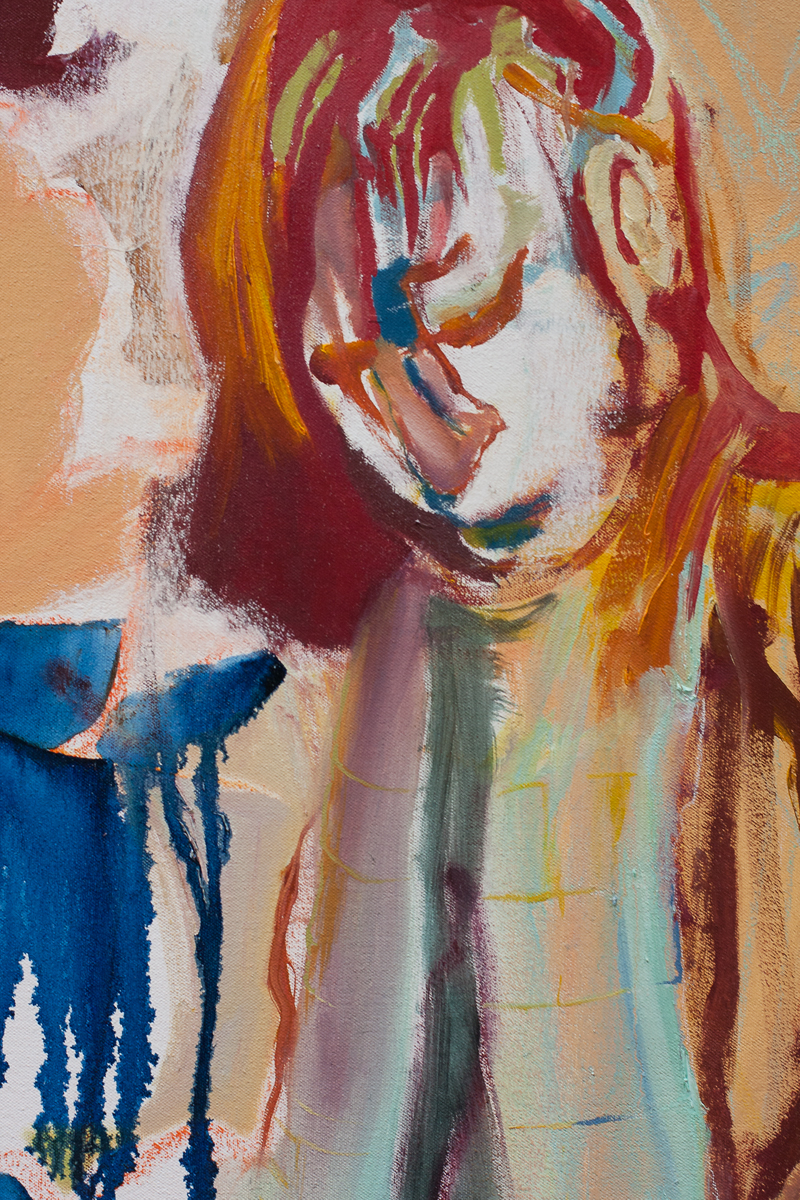
Rachel DeBoard — Highland Park, MI